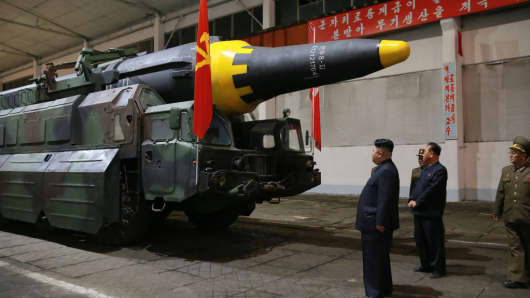On Friday, South Korean President Moon Jae-in met with North Korean leader Kim Jong-un to begin a process that many hope will result in the denuclearization of North Korea.
If successful, President Donald Trump will meet with Kim Jong-un in the following weeks to potentially strike a deal that few thought was possible only months ago.
While it is understandable that North Korea's denuclearization will be the focus of those talks, the joint American, British, and French response to Syria's use of chemical weapons on its own population underscores why Japanese Prime Minister Abe Shinzo has pressed President Trump to also include the elimination of North Korea's chemical and biological weapons in any agreement with Pyongyang.


